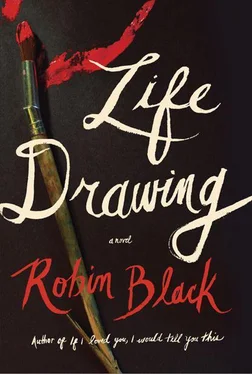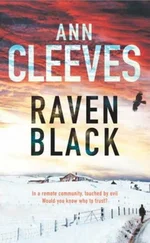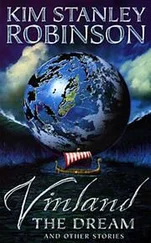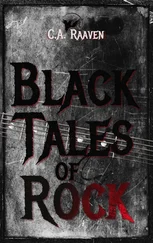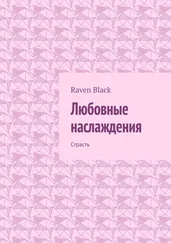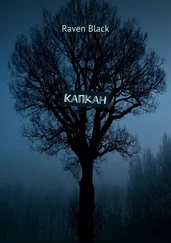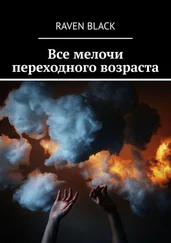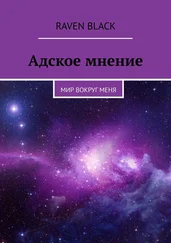“Money,” she said. “Stupid, minor things about selling the house. But it could have been anything. It’s really about me walking out on him — probably. Who knows. It’s two years. More. And before I did that, it was a million other things.”
The windows were open, white curtains floating in a breeze too mild to be felt. The furniture, mismatched, some maple like the bed, some mahogany, looked as though it had been in the house for eighty years or more. So did the wallpaper, yellowed, vertical stripes of tiny flowers buckling so few of the lines appeared to be straight.
She seemed to read my mind. “The website made it sound a bit less shabby than it actually is, but I don’t care. I love it here.”
“No, I wouldn’t care either.”
She sat up a little straighter. “You know, he’s never been at all that way with her. Nothing like he is with me. I just hate for her even to see it.”
“That’s good that he’s better with her.”
“And she uses the religion, you know. It keeps her tied to him. ‘Honor thy father,’ all of that. I figured it out a while back. I’m sure that’s part of why she took to it. It’s a system. Rules. You know, children almost never do break off. Not really. This just gives her a reason to hang in with him, I think.”
It was so difficult not to stare at her, just trying to take it in as real. Even as I could hear his angry voice still ringing in my ears, it was impossible to imagine. Her beauty had everything to do with a certain delicate quality. He must once have seen that clearly, must once have loved it in her.
Alison was staring toward the motion of the curtains, two white flags fluttering. “I know Nora spent a lot of her time here with Owen. And I was really glad for that. Your Owen is so calm and so reassuring. He seems … unflappable. And he was very gentle with her about her literary ambitions. I kept thinking it had to be good for her to be around a man like that. I hope he didn’t mind. I hope she wasn’t a bother for either of you.”
“Oh, Lord. Owen enjoyed the ego boost. It’s been such a rough period. Workwise, I mean.”
“Well, he certainly got that.” She turned back toward me, a real smile hovering. “Nora seems to worship him,” she said. “She was entirely star-struck.” But then the smile fell. “I just don’t understand how Paul found us. And where the hell is Heather? How did the plans get all changed around? It makes no sense at all.”
“You’ll find out. You’ll talk to her.” I was pondering Owen as a father figure. A positive male influence. Maybe something like the role I had played for Laine.
“I should go paint,” she said. “That’s what you would do, right? I should stop feeling sorry for myself and go make something.”
“Maybe. Though …” Did I stop feeling sorry for myself when I worked? In a way. Often, I stopped feeling much at all. “You should paint if it will help. Or, I don’t know, we could go out? It’s Tuesday, you know.”
“Right. That’s not a bad idea.” She sat up a tiny bit. “That might be just the thing.”
The fact that the local farmers’ market fell on Tuesday afternoons had been information haphazard in my consciousness until Alison’s arrival; but by then it was woven into the rhythm of every week. We agreed to meet on the hill at two forty-five.
“I’ll drive,” she said, and I feigned horror, but agreed. As I stood, I considered leaning to kiss her. She would have, had the roles been reversed, I knew. But I only said, “See you in just a bit.”
While I painted that afternoon, I thought about violence. I hadn’t been around much in my life, yet when I’d heard it outside my window I had known it right away, known the difference between a raised voice anyone might use and the sort that carries physical weight behind it, the sort that seems somehow connected to tissue, to muscle, in a seamless continuum that could lead to impact. In this case it had been only the slam of a car door, the screech of tires, the foot too hard on the accelerator. Nobody hurt. But violence nonetheless.
I was back to working on Jackie and his chessboard that day, fiddling with the light coming in through the window — a west-facing window, so low, falling light. Violence had killed these boys, every one of them, but violence of a chillingly impersonal sort.
The paintings were tender ones, and I wondered if more evidence of violence should be found. The word potential came to mind. That was really what had been in that terrible voice. The potential for violence. Like the wild animal slipped beneath my father’s skin, staring at me through his eyes. Was it something I wanted in the pictures? Some glimpse of the tension produced by that potential in the air? How would I do it, if I wanted to?
It was all outside my experience. Even when decimated, Owen had never shown the palest hint of a threat in his voice or demeanor. And Bill. Bill and I had been tender with each other in the way only lovers with stolen time can sustain. Even in parting, gentle, gentle, gentle, like the tedious people who must unwrap every present slowly, leaving the paper entirely intact.
I looked around the studio, at the paintings, the sketches leaning against the wall and taped to boards, and I realized that these weren’t depictions of potential of any kind. Not for violence and not for love and not for happiness or misery or disloyalty or forgiveness. They were something else, something far more resonant for me. “Consequence.” I said the word out loud, and went back to work.
With Alison at the wheel, I braced myself.
It was a cool day for the second week of September. We talked about the surprising early signs of fall — surprising though they arrived at this time each year. The scrubbier maples, we agreed, were always the first to turn and never made it beyond yellow. The Japanese would be the last to go out in their scarlet, phosphorescent blaze. But this summer had been a wet one, so the whole show promised to go on a long time. Well-nourished trees were always slow to drop their leaves, I said.
“I hope I’m still here then,” Alison said. “I have some decisions to make. I’d been counting on being lost, I suppose. Lost to him, anyway.”
“Oh, you have to stay.”
“We’ll see. That’s very nice of you.”
“Just don’t think about it today,” I said. “Just enjoy being here.”
“Okay.” And then after a silent stretch, she said, “I’ve had days here when I can almost forget about Paul, you know.”
“Another reason for you to stay.”
“Yes. If I still can.”
As Alison drove, she told me more about him than she ever had before: how they had met back in London, how surprisingly happy they had been in those early days. “He was the most magnetic man I’d ever known,” she said. “And romantic. Very good at the big gestures, the bouquets, the thoughtful gifts. I’ve never been sure how much he changed and how much I started noticing more of what he really was. Probably some of both.”
By the time Nora was born, she said, they were already caught in a terrible cycle of fights and then those grand, sweeping declarations of love. “Those good moments always seemed like windows to a whole new life. I was constantly looking for the turning point. Eighteen years in, I was still telling myself that things were going to improve. And the sad part is I could read about it in any book. I would. I would go to bookstores and sneak into the self-help section, and I knew, at a certain level I knew that all couples become the same couple. There I’d be. Page sixteen. The enabling spouse. Exhibit A. I saw it. Even before he started hitting me. I knew it. I did. But I didn’t accept it. Not for a very long time. To be defined by something so … so ultimately not about me. To see myself staring out from a page. It felt impossible in some way. I thought I should be more my own person. It sounds odd, but I found it insulting.”
Читать дальше
